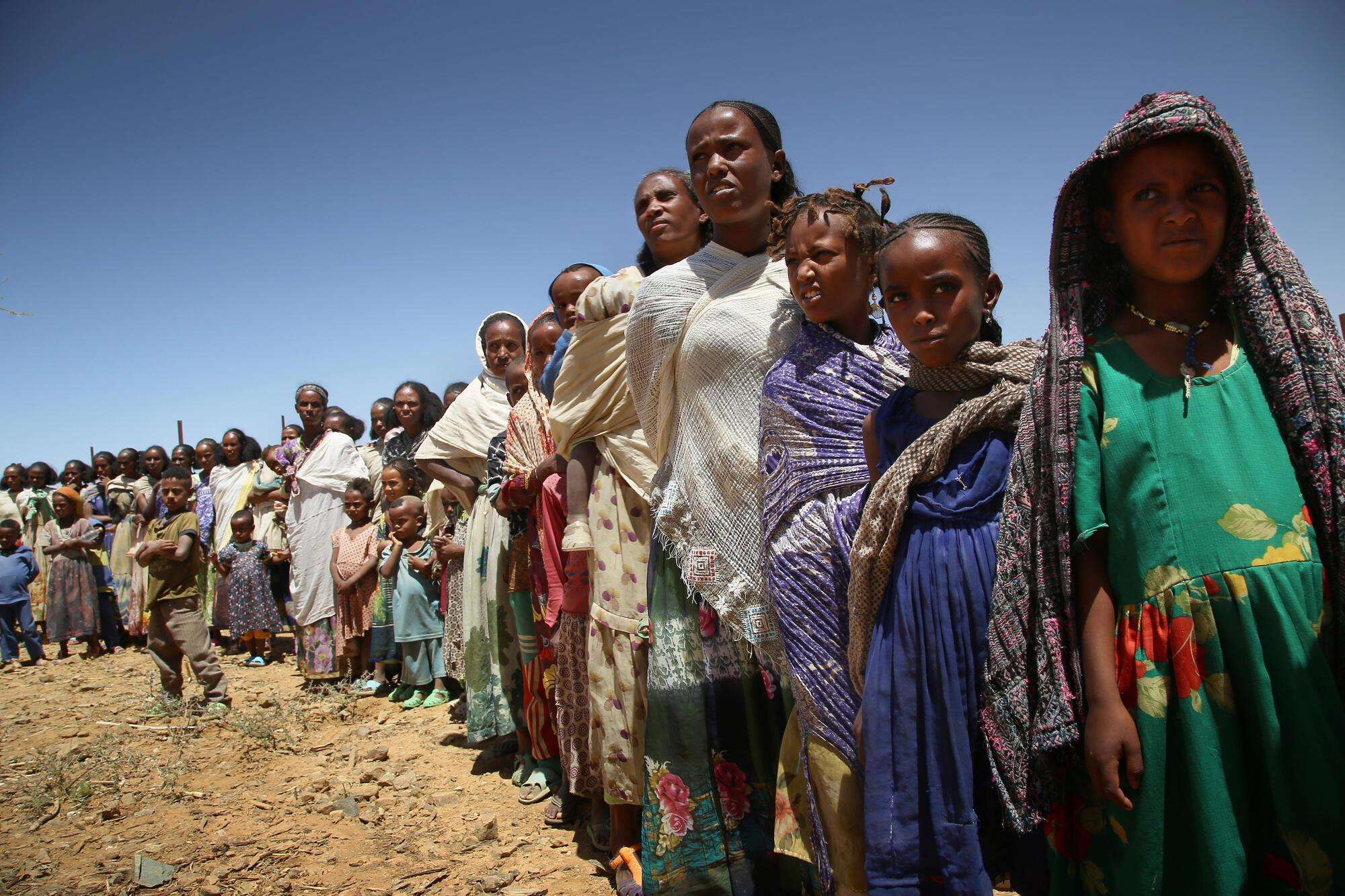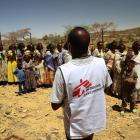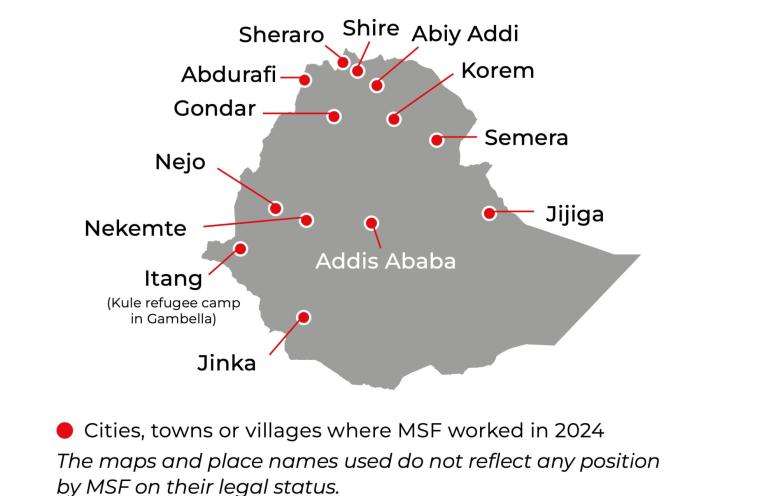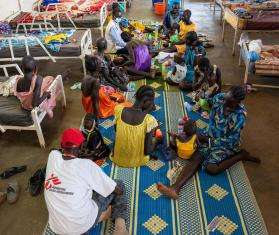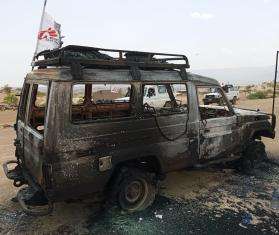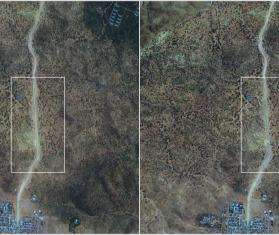Gambella
In Gambella, we provided essential care at health centers in Kule refugee camp such as specialist treatment for malaria, malnutrition, and sexual and gender-based violence (SGBV), as well as vaccinations, including for malaria.
Somali
In Somali region, MSF’s emergency team responded to malnutrition, disease outbreaks, and mass displacement.
AfarIn Afar, we ran water and sanitation activities and an inpatient therapeutic feeding unit. We also supported the regional hospital’s pediatric department and a cholera response.
In South Ethiopia and Southwest Ethiopia Peoples’ regions, we used mobile clinics to deliver care for malaria and measles, as well as kala azar (visceral leishmaniasis).
Amhara
In Amhara, our teams provide emergency health care for people affected by the ongoing conflict and continue to focus on preventing and treating neglected tropical diseases such as kala azar and snakebite.
Tigray
In Tigray, we run a range of services, including maternal and child health care, a nutrition program, and treatment for sexual and gender-based violence. In addition, our mobile teams worked in hard-to-reach areas and repaired over 600 water pumps. We also rehabilitated several departments in Abiy Adi General Hospital.
Oromia
In 2024, we responded to a surge in malaria cases at two hospitals in Oromia and ran mobile clinics conducting health promotion and water and sanitation activities and distributing mosquito nets.
Korem
In Korem, we ran mobile clinics and supported the general hospital’s maternal, pediatric, and emergency departments.
MSF continues to call for accountability for the deaths of our colleagues
Our colleagues María Hernández Matas, Tedros Gebremariam Gebremichael, and Yohannes Halefom Reda were intentionally killed while clearly identified as humanitarian workers in Tigray on June 24, 2021. We continue to pursue accountability for their deaths, with the hope that this will improve the safety of humanitarian workers in Ethiopia.
